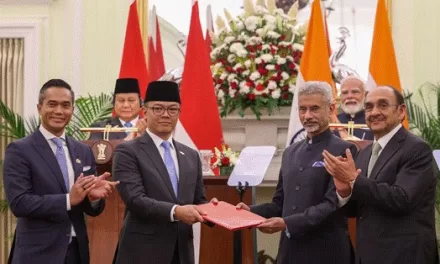A new study by researchers from Johns Hopkins Medicine reveals that people aged 60 and older with weakened immune systems may not produce enough protective antibodies against Respiratory Syncytial Virus (RSV) after vaccination. This is particularly concerning for organ transplant recipients and individuals with immune system disorders who take immunosuppressive medications to prevent organ rejection.
The research, published today in JAMA, provides new insights into how the immune systems of immunocompromised individuals respond to RSV vaccines. This study builds on previous research conducted at the Johns Hopkins Transplant Research Center, which has focused on immune responses to COVID-19 vaccines in similar populations.
RSV, a highly contagious virus that affects the respiratory tract, is primarily a concern for infants and young children, but it also poses serious health risks to the elderly and immunocompromised individuals. The virus can cause severe respiratory illnesses, such as pneumonia, in these vulnerable groups.
Dr. Andrew Karaba, assistant professor of medicine at Johns Hopkins University School of Medicine and lead author of the study, stated, “We found that older adults who are immunocompromised developed fewer antibodies against RSV after vaccination compared to healthy people over 60, who showed strong immune responses in clinical trials.”
Moreover, the study revealed significant variability in the immune responses of immunocompromised individuals, with some participants showing robust increases in immunity, while others exhibited minimal response. This variability was a key finding, as it suggests that the immune system’s reaction to the vaccines may differ widely within this group.
The research team used data from the ongoing Emerging Pathogens of Concern in Immunocompromised Persons (EPOC) study, which is led by Johns Hopkins Medicine. They followed 38 participants, aged 64 to 72, who were immunocompromised and received either the RSVPreF3-AS01 (Arexvy) or RSVpreF (Abrysvo) vaccine. The participants included 82% solid organ transplant recipients, and 74% were taking two or more immunosuppressive medications.
Both RSV vaccines target the F protein on the virus’s surface in its pre-infection form, known as pre-fusion F. The presence of high levels of antibodies that neutralize this protein is crucial for preventing RSV infections. While natural infections with RSV do not produce sufficient protective antibodies, the vaccines aim to fill this gap and offer strong immunity.
Interestingly, the study found that the Arexvy vaccine, which contains an immune-stimulating adjuvant, produced higher levels of RSV-neutralizing antibodies compared to the Abrysvo vaccine, which does not contain an adjuvant. This suggests that adjuvants could enhance immune responses in immunocompromised individuals.
Dr. William Werbel, senior author of the study and assistant professor of medicine at Johns Hopkins University School of Medicine, explained, “Adjuvant-enhanced vaccines show promise in improving immune responses, and further investigation into their effectiveness for immunocompromised individuals is needed.”
Despite these findings, both Dr. Karaba and Dr. Werbel emphasized that the study does not suggest RSV vaccines will be ineffective in immunocompromised populations. The U.S. Centers for Disease Control and Prevention (CDC) currently recommends a single dose of an RSV vaccine for individuals 75 years and older, and for those 60 and older who are at high risk, including those with weakened immune systems.
Karaba added, “Just as with our previous work on COVID-19 vaccines, we look forward to further research on RSV vaccine responses. This will help refine vaccine strategies and improve protection for immunocompromised individuals.”
The study’s findings underscore the importance of ongoing research into vaccine responses for vulnerable populations, and may lead to future recommendations on the timing and selection of RSV vaccines for immunocompromised individuals.
The full study, titled Antibody Response to Respiratory Syncytial Virus Vaccination in Immunocompromised Persons, is published in JAMA (2024). The research team included Prasanthy Balasubramanian, Sc.M.; Camille Hage, M.D.; Isabella Sengsouk; and Aaron Tobian, M.D., Ph.D., with co-author Dorry Segev, M.D., Ph.D., from the New York University Grossman School of Medicine.












